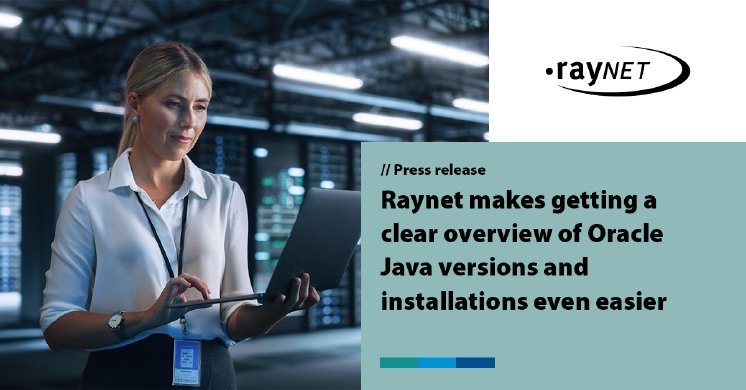According to a recent Gartner research note, Oracle is actively targeting its customers for Java audits. Based on client interactions, Gartner concludes, “52% of the Oracle software compliance and audit-related interactions focused on Oracle Java” in 2022.
With the increased likelihood of a Java audit, enterprises need to ensure they have complete visibility of Java in their IT landscape, including where and how Java is installed, the number of installations, and which versions are installed. Because not every Java version needs a commercial license, it’s crucial that enterprises have version information, so they can make smarter, more strategic licensing purchases and to avoid paying for licenses they don’t need.
Yes, we scan: Oracle Java
Raynet is offering organizations free Oracle Java scanning and reporting to help them get complete Java visibility. In just three simple steps, customers can register, inventory their IT environment, and submit the inventory results. With the help of Raynet’s Unified Data Platform, the data is normalized and enriched with information from its in-house Technology Catalog.
Within a few days, customers receive a personalized report with information about Oracle Java installations. This information includes:
- Number of Oracle Java installations
- License type (commercial/freeware)
- End-of-Life/End-of-Support information
- Information about the application’s business function
- Number & name of devices
- Operating systems/servers with Oracle Java
- Evidence, CPU & core information
These reports are the bedrock of any licensing decisions and are crucial tools for preparing for an Oracle Java audit.
More information: Oracle Java


